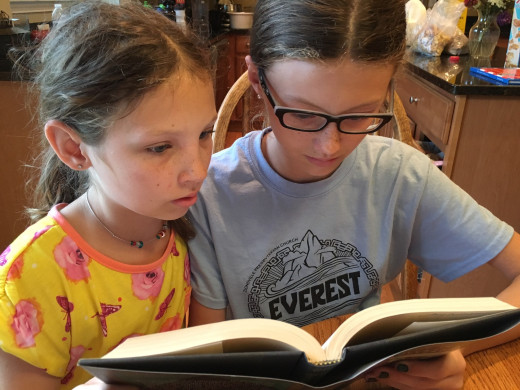Homeschool parents wear so many hats and we have so much on our plates. I wondered if reading A Thomas Jefferson Education: Teaching a Generation of Leaders for the 21st-Century, by Oliver DeMille, would make me feel guilty I am not doing more.
The idea of A Thomas Jefferson education can seem overwhelming, even to my type-A self. Thankfully the book did not make me feel guilty or feel like I need to add things to my schedule. If anything, it made me realize I should probably keep things more simple and focused.
Our culture needs leaders. Training leaders does not have to be a complicated task. In fact, here’s what DeMille argues in his book:
“To achieve truly excellent education, keep it simple: read, write, do projects, and discuss. The more complex our national curriculum has become, the less educated our society.”
DeMille believes that a “conveyor belt education”—which is primarily utilitarian and exists to prepare students for a job, any job, by teaching them what to think—should not monopolize education, as is the case today in America where almost everyone attends public schools. Leadership education—where students are taught how to think—is desperately needed, and homeschooling can be the best avenue for it.
“Homeschooling has a long and successful tradition … The very wealthy have always educated their children at home, some through professional tutors and others with the parents as mentors…Many of the greatest thinkers, leaders, statesmen, entrepreneurs, scientists, and artists of history were self-educated.” Self-education is the goal and, according to DeMille, when the focus of education is on great teaching, as it should be, a student will naturally be inspired to learn for himself.
Leadership education can be distilled to two essential elements: mentoring and the classics.
“The greatest leaders in history used a very simple curriculum. They read the classics, they discussed them with a mentor who accepted only quality work, and they applied what they learned to real life.”

Read, Discuss, Apply.
Classics teach us human nature, bring us face-to-face with greatness, take us to the frontier to be conquered, force us to think, and connect us to stories.
I appreciated that DeMille didn’t simply stay in the realm of theory. He offers appendices loaded with information on how to transition toward leadership education in your homeschool program. He offers book lists, discussion questions, and steps for how to start. Hint: you start with yourself.
But what if you don’t think your child is “leadership material”? DeMille urges parents to avoid the mindset that “a leader is someone with smooth charisma and a TV personality.” Leaders are ordinary people who have simply learned to be great.
“Statesmen are needed in our day, in our communities, homes, businesses, schools, churches, governments, relationships and associations.
“In 1776 Thomas Jefferson declared the independence of all humankind, but in 1764 he was just a college student trying to mend a broken-heart.
“In 1780 George Washington almost single-handedly brought down the greatest military force on earth, but in 1764 he was just a farmer struggling to get out of debt.
“In 1787 James Madison swayed the entire course of history, but in 1764 he was just a shy twelve-year-old.
“It is the ordinary people in our day, just like those in 1764, who have greatness within them, if they decide to develop it.”
I thought this was a good summary quote for DeMille’s book:
“If you want to be successful in creating leadership education, in preparing students to lead their families, communities and careers, teach them how to think. How? Get them into the classics, do it with them, accept only quality, and apply it to real life. Over and over and over again, until they leave your home or classroom. When they leave and go away to college or career, they’ll be leaders. And so will you.”
Here are some things I personally plan to be more intentional about, after reading A Thomas Jefferson Education:
- Take my role as mentor to my children more seriously.
- Look for more opportunities to have discussions about what we read and experience.
- Make sure we are consistently reading quality, classic books to help shape my kids’ thinking; not to just enrich them.
- Stop tuning-out when the kids are listening to audio books in the car. (The first day I stopped doing this, I paused the CD and we had a five minute conversation about work ethic, a conversation I would have missed-out on had I been tuning-out in the car, as usual.)
- Schedule book discussion times and invite friends. Deadlines work to motivate!
- Keep remembering that it’s more important to inspire learning than to plough through the material every day.
I think the ideas in A Thomas Jefferson Education will stay with me and shape my approach to homeschooling.
-Amy
Photo Credit: First image graphic design by Charity Klicka; all other images by Amy Koons.

